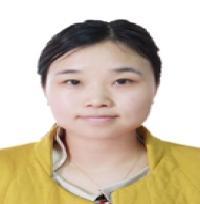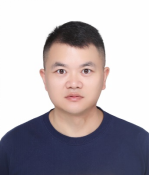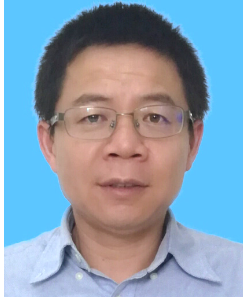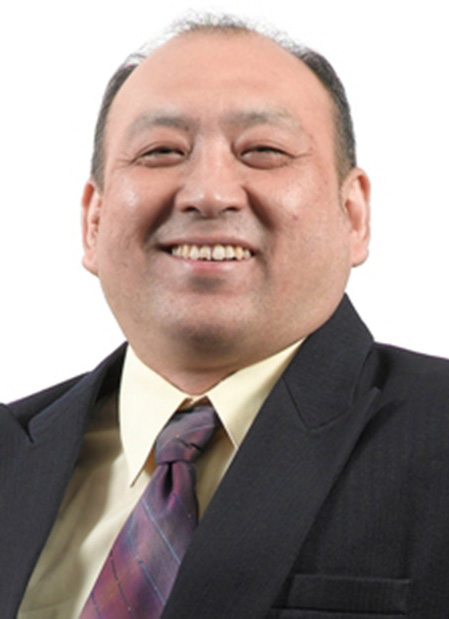
Assoc. Prof. Pavel Loskot, Zhejiang University - University of Illinois at Urbana-Champaign Institute, ChinaIEEE Senior MemberPavel Loskot has nearly 30 years of experience in design, analysis, implementation and deployment of telecommunication systems through numerous academic and industrial collaborative projects and consultancy contracts. Expert level knowledge of digital and statistical signal processing, algorithms and methods. Solid background in applied probability and statistics. Avid Linux programmer and user since 1996. In 2014/2015, as a Visiting Researcher at CSRC of the Chinese Academy of Engineering Physics started working on computational molecular biology. In 1999-2001, Research Scientist and Project Manager at CWC, Oulu, Finland. A Fellow of the Higher Education Academy of the UK, and the Recognised Research Supervisor of the UK Council for Graduate Education. A Senior Member of the IEEE, since 2013. Elected IARIA Fellow in December 2025. Speech Title: Filtering of Random Processes: Model-Based vs. Sample-Based StrategiesAbstract: The objective of filtering random processes is their estimation in the presence of measurement noise and possibly additional distortions. In engineering systems, the central limit theorem usually holds, so the random processes and noises are Gaussian unless they are distorted by a non-linearity. In addition, the engineering systems are often designed following well-defined models, which can be exploited in defining the optimum statistical inference strategies. There are, however, situations when the models are not known. In such a case, an alternative strategy for estimating (i.e., filtering) random processes is to assume certain classes of universal models, which can be identified by using a sufficient number of input-output training examples. The downside of considering universal models is the very high computational, memory, training, and thus, often also financial costs incurred to obtain the universal models. In this talk, I will first claim that the models of systems can be equivalently described to a varying degree of accuracy using mathematical expressions, computer algorithms, or the input-output pairs of samples. I will then explain how the supervised and unsupervised learning strategies have been used for decades to design adaptive filters of random processes. Finally, I will conclude my talk by briefly outlining the recent developments in using universal filters, which are based on deep learning architectures. |  |
| Prof. Min Jia, Harbin Institute of Technology, ChinaIEEE Senior MemberProf. Min Jia is professor and Ph. D supervisor of Harbin Institute of Technology and School of Electronics and Information Engineering. She has carried out systematic research on the theory and method of utilization of multi-dimensional and multi-domain efficient resource management for satellite terrestrial stereo spectrum shared network, And 5 papers are selected as ESI 1% high citation papers. Two political advisory report has been adopted by national and provincial ministerial administrations as the first author. She has been granted 61 patents as the first inventor and won 10 Best paper awards. As the proposal leader leads one technical proposal from the IMT-2030 6G Promotion Group. And also participated in three industry standards which have been implemented in the communication industry field. As the project leader undertake one key project of the National Natural Science Foundation of China. She was selected as a council member of the Chinese Institute of Electronics and established the first IEEE Women In Engineering Harbin Affinity Group in China. She is the editorial board member or guest editor for 8 domestic and international journals. She also won the first level Science and Technology Award of China Institute of Communications and the second Science and Technology Award of Heilongjiang Province, as well as the Heilongjiang Province Youth Science and Technology Award and the Chinese Institute of Electronics Young Scientist Award. She was selected as the Youth Scholars Program by Ministry of Education in 2021. Speech Title: Multi agent-Edge Computing assisted efficient resource management in Collaborative Satellite and Terrestrial SystemsAbstract: The space-ground integrated network, empowered by multi-agent collaboration, is an emerging architectural paradigm designed to accommodate diverse services and applications in next-generation networks. This technical report proposes a three-dimensional space-air-ground omnidirectional network architecture targeting comprehensive requirements across marine, aerospace, and terrestrial domains. The envisioned system guarantees continuous global coverage while supporting heterogeneous service demands spanning telecommunications, navigation, IoT, and sensing-control integration. From a multi-agent system perspective, this keynote address presents three pivotal innovations. An intelligent computing framework for optimized resource orchestration in satellite-terrestrial ecosystems. Moreover, a converged 6G network architecture integrating communication, sensing, storage, and computing capabilities within SAGIN (Space-Air-Ground Integrated Networks). Furthermore, a novel edge-core collaborative model deploying LEO satellites and mobile terminals as distributed intelligent agents. The proposed methodology advances resource management paradigms for space-ground converged networks through three key enhancements. Dynamic resource virtualization across orbital and terrestrial strata, AI-driven quality-of-experience optimization for multi-service provisioning and distributed decision-making mechanisms balancing central coordination and edge autonomy. This research provides transformative insights for next-generation network infrastructure development, offering implementable solutions that bridge theoretical innovation with practical deployment considerations. The proposed architecture demonstrates significant potential in advancing global connectivity frameworks and accelerating the realization of ubiquitous intelligent networking. |
Prof. Zhiyuan Zha, Jilin University, ChinaIEEE Senior MemberZhiyuan Zha (Senior Member, IEEE) received the Ph.D. degree with the School of Electronic Science and Engineering, Nanjing University, Nanjing, China, in 2018. He is a Professor at the College of Communication Engineering, Jilin University. Prior to that, he was a Senior Research Fellow with Nanyang Technological University, Singapore. His current research interests include inverse problems in image/video processing, sparse signal representation and machine learning. He was a recipient of the Platinum Best Paper Award and the Best Paper Runner Up Award at the IEEE International Conference on Multimedia and Expo in 2017 and 2020, respectively. He has been an Associate Editor for IEEE Transactions on Image Processing since 2024, a Handling Editor for Signal Processing since 2024, and an Associate Editor for The Visual Computer since 2023. He was supported by the Excellent Young Scientist Foundation of NSFC (Overseas) of 2024. Speech Title: Multiple Complementary Priors for Image RestorationAbstract: In recent years, research utilizing deep models have achieved superior results in various image restoration (IR) applications. Such approach is typically supervised, which requires a corpus of training images with distributions similar to the images to be recovered. On the other hand, the shallow methods, which are usually unsupervised remain promising performance in many inverse problems, e.g., image deblurring and image compressive sensing (CS), as they can effectively leverage nonlocal self-similarity priors of natural images. However, most of such methods are patch-based leading to the restored images with various artifacts due to naive patch aggregation in addition to the slow speed. Using either approach alone usually limits performance and generalizability in IR tasks. This talk introduces a joint low-rank and deep (LRD) image model that incorporates multiple complementary priors: internal and external priors, shallow and deep priors, as well as non-local and local priors. Based on this model, a novel hybrid plug-and-play (H-PnP) framework is designed for image restoration, along with a simple yet efficient algorithm to solve the H-PnP-based image restoration problem. Extensive experiments on multiple representative image restoration tasks including image deblurring, image compressed sensing, and image deblocking, demonstrate that the proposed H-PnP algorithm outperforms various popular or state-of-the-art image restoration methods in terms of both objective metrics and visual perception. |
|
| Prof. Lisheng Xu, Northeastern University, ChinaIEEE Senior MemberXu Lisheng, full professor and PhD supervisor of the College of Information Science and Engineering, Northeast University. His research interests include advanced sensing and intelligent perception, artificial intelligence in biomedical signal and image analysis, and computer-aided diagnosis technology. At present, he is the principle investigator of 23 projects such as the National Natural Science Foundation of China, doctoral programs of the Ministry of Education and projects of the Natural Science Foundation of Liaoning Province and so on. He has won the honors of "Excellent Master's Instructor in Liaoning Province", "Excellent Postgraduate Supervisor in Shenyang", "One Hundred Thousand High-end Talents Introduction Project" in Liaoning Province, "Thousand Talents Level" in Liaoning Province, and "Top Young Talents" in Liaoning Province. Currently, 219 journal and conference papers have been published, including 158 SCI indexed papers and 50 EI indexed papers; 21 invention patents have been granted. He is the Vice President of the Diagnostic Information Committee of the Chinese Medical Information Research Association, Senior Member of IEEE, Vice Chairman of the Biomedical Measurement Committee of the Chinese Biomedical Engineering Society, Member of the 6th DisciplineEvaluation Group of Liaoning Province, associate editor of international journals such as Biomedical Signal Processing and Control, Frontiers in Physiology, Scientific Reports, etc. He has won the first prize for scientific and technological progress in Liaoning Province, with a main research focus on new technologies for intelligent non-invasive diagnosis and treatment of the cardiovascular system based on multimodal data. Speech Title: New technology for non-invasive intelligent diagnosis, treatment, and integrated health of cardiovascular systemAbstract: The human cardiovascular and cerebrovascular system contains a wealth of functional information that needs to be further revealed. Dynamic monitoring is a very effective way to obtain real-time data individually. However, dynamic monitoring faces difficulties in data collection, and some data cannot be non-invasively monitored. However, individual differences are significant, and information on cardiovascular function needs to be revealed more comprehensively through multimodal data and more efficient learning methods. At present, the treatment of the cardiovascular and cerebrovascular system mainly relies on medication and invasive surgery. Therefore, there is an urgent need to develop non-invasive and non-pharmacological methods for treatment and intervention. Furthermore, closed-loop integration of diagnosis and treatment can be achieved for more precise dynamic non-invasive intervention and control. Firstly, this lecture introduces the preliminary work of the research group in flexible sensing and unawareness monitoring. Then, the personalized modeling and precise diagnosis of cardiovascular and cerebrovascular functions based on multimodal data-driven and knowledge-driven learning will be introduced. Finally, the research on personalized intervention based on non-invasive ultrasound will be demonstrated. |
Prof. Maode Ma, Qatar University, QatarIET FellowProf. Maode Ma, a Fellow of IET, received his Ph.D. degree from the Department of Computer Science at the Hong Kong University of Science and Technology in 1999. Now, Prof. Ma is a Research Professor in the College of Engineering at Qatar University in Qatar. Before joining Qatar University, he has been a faculty member at Nanyang Technological University in Singapore for over 20 years. He has extensive research interests including network security and wireless networking. He has led 26 research projects funded by government, industry, military, and universities in various countries. He has supervised 25 research students to get their Ph. D degrees. He has been a conference chair, technical symposium chair, tutorial chair, publication chair, publicity chair, and session chair for over 100 international conferences. He has been a member of the technical program committees for more than 200 international conferences. Prof. Ma has more than 500 international academic publications including over 250 journal papers and about 250 conference papers. He has edited a few technical books and produced over 28 book chapters. His publication has received over 10,000 citations in Google Scholar. He has delivered over 90 keynote speeches and 10 tutorials at various international conferences. Prof. Ma currently serves as the Editor-in-Chief of the International Journal of Computer and Communication Engineering and the Journal of Communications. He also serves as a Senior Editor for IEEE Communications Surveys and Tutorials, and an Associate Editor for the International Journal of Wireless Communications and Mobile Computing and International Journal of Communication Systems. Prof. Ma is a senior member of the IEEE Communication Society and a member of ACM. He is now the Chair of the ACM, Singapore Chapter. He has been serving as an IEEE Communication Society Distinguished Lecturer from 2013 to 2016 and from 2023 to 2024. Speech Title: Batch Message Authentication with Edge Server Supports in IIoTAbstract: Within the domain of the Industrial Internet of Things (IIoT), as showcased by smart factories, resource-constrained smart devices generate large amounts of privacy-sensitive data during operation, which enters vulnerable networks. When malicious entities within the network compromise this data, it can result in operational disruption and even incapacitate the entire IIoT ecosystem. For the seamless operation of intelligent production, data recipients must authenticate the incoming data before use. Traditional message authentication methods in the IIoT context often authenticate each message. This approach leads to repetitive processing and added computational costs. Addressing this issue and fortifying data security among smart devices, we've introduced an innovative batch authentication technique anchored in edge computing principles. This method incorporates a robust batch message authentication algorithm and capitalizes on the strengths of edge servers for smart device verification. The proposed protocol not only markedly alleviates the computational load on smart devices but also enhances the efficiency and validity of message verification. |
|



